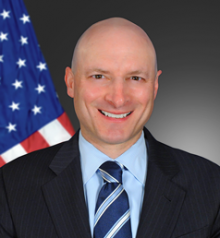Will consumers continue to be protected from dangerous and defective products under Trump presidency?
 When a company discovers that one of its products is defective, the potentially harmful product must be recalled and consumers must be warned about the products hazards. Companies that fail to timely do so may be subject to multi-million-dollars civil lawsuits by the Consumer Product Safety Commission (CPSC).
When a company discovers that one of its products is defective, the potentially harmful product must be recalled and consumers must be warned about the products hazards. Companies that fail to timely do so may be subject to multi-million-dollars civil lawsuits by the Consumer Product Safety Commission (CPSC).
In the past the CPSC had a weak reputation but since Elliot Kaye took over as Chairman, the Commission became much stricter. While in 2009 the total amount of penalties imposed by the CPSC didn’t even reach $10 million, the total penalties for last year was $26.4 million. So far this year, this amount reached $31.25 million. The lowest amount of 2009 is also related to the fact that up to 2008, CPSC penalties were capped at $8000 per violation. In 2008, after several children died after ingesting lead tinted toys the Congress decided to increase the cap to $100,000. The Congress also increased the aggregate limit of $1.825 million for a series of related offenses to $15 million. Nominated by president Obama, Kaye was hoping to increase penalties even further.
Companies have often considered potential civil penalties related to defective products as a “cost of doing business”. This is exactly what Elliot Kaye has been fighting. During his tenure at the head of the CPSC, several companies including Johnson Health Tech, Philips Lighting, Teavana, Jarden Consumer Solutions and Gree Electric Appliances had to pay multi-million-dollars settlements for failing to timely report product hazards.
With the arrival of Trump as president, there is a risk that the CPSC becomes again a doormat with few resources and a toothless enforcement record.
Read more in Fair Warning
 New York Personal Injury Attorneys Blog
New York Personal Injury Attorneys Blog


